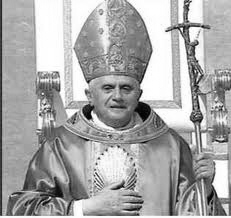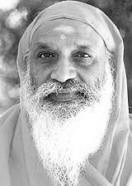By Kollengode S. Venkataraman
Life-time tenure is the privilege of a very few — Supreme Court judges in the US, the Pope, and despots. All of them have something in common: None can question their decisions. At least, US Supreme Court judges can only decide on cases brought before them. Besides, we have nine of them, all equal among themselves. Even tyrants and despots can be, and are, sometimes overthrown or killed, often with covert and overt help from other nation-states.
But popes in the last 600 years have held on to their office till their death despite the intrigues in the Vatican’s labyrinthine bureaucracy. Frank Bruni in the New York Times has described the abject condition in which the very sick Pope John Paul II was kept in office in his final days by the Vatican officials, who are the real power wielders there.
The Vatican is powerful — it is the only religious institution to have diplomatic relations with nations in the rest of the world. It has over a billion followers worldwide, which it manages with an obedient bureaucracy that dwarfs even that of the Chinese in its hierarchical details and obedience. Its assets, reach and influence are disproportional to its size. So, tenure-till-death for popes, who typically ascend their throne in their sixties, is no way to run the gargantuan multinational corporation of Roman Catholicism in the 21st century confronting complex issues.
The Pope is also infallible, and the Holy Father’s power, while in office, is absolute. This means that the Vatican bureaucrats and officials, who work closely with the Pope wield enormous influence behind the scene. The political intrigues within the Vatican will will best all other palace intrigues, simply because the Vatican, leading the Christian faith, often speaks on many temporal matters when it suits its political ideology.
So, when Pope Benedict XVI resigned citing old age and ill health to handle the stresses of the office, encomiums poured from all over on his humility and candor for giving up the job. The stressful job requires energy to attend to the serious policy matters of the church, daily routines, and state visits. The last pope to resign, Gregory XII, resigned nearly 600 years ago under schism when three others were declared as popes by rival groups.Â
Pope Benedict XVI faced serious problems during his tenure — shrinking influence and declining church attendance in Europe and North America, difficulty in recruiting priests and nuns in Caucasian countries, and finally, crimes of pedophilia committed by clergy in North America, Europe, Australia, even Latin America. If the shame of pedophilia was not enough, the world was stunned to know that the archdioceses — including the archbishops — covered up the misbehavior of their deviant priests. In the US many archdioceses filed for bankruptcy to shield themselves from the financial obligation of judgments against the errant priests in lawsuits.
Before becoming Pope Benedict XVI, as Cardinal Ratzinger, he headed the Holy Office of the Congregation of the Doctrine of the Faith, earlier known as the Supreme Sacred Congregation of the Roman Inquisition, or simply the infamous Inquisition. In this office, he had exclusive access to all internal documents on wayward priests world-wide.
Ratzinger as a young man studied philosophy and theology, and was ordained in 1951. He earned a doctorate in theology in 1953. For years he was a professor of theology at various universities in Germany. He was known for the depth and breadth of his intellect. He published many essays, sermons and reflections, reinforcing his scholarly reputation.
As an ardent student of philosophy and theology, Ratzinger would have studied other systems of approaches in mankind’s eternal quest for spiritual growth. Further, as a priest he would have grasped the diverse temperamental profiles of people even within an archdiocese. But Cardinal Ratzinger, even before becoming Pope, was quite dogmatic on temporal matters and on liturgies as he entered the 21st century, even as he saw diversity of opinions on various issues confronting his church.
Cardinal Ratzinger’s dogmatism extended to his interactions with leaders from other faiths. As we entered the new millennia, in the late 1990s Anno Domini, the UN commissioned leaders of different faiths to come up with a resolution on religious amity. A draft resolution was circulated among the leaders from diverse faiths — Judaism, Christianity, Islam, Buddhism, Zoroastrianism, Jainism, Hinduism, Sikhism and others. Cardinal Ratzinger led the Vatican delegation.
While finalizing the draft, Swami Dayananda Saraswati made his case that the resolution should replace “tolerance” among the religions with the phrase ‘mutual respect.” The Swamy’ point was noteworthy. Tolerance may signify no more than forbearance and the permission given by the adherents of a dominant religion for other religions to exist, even though the latter are looked on with disapproval as inferior, mistaken or harmful. An example given was, when we are invited as guests, simply to be “tolerated” by our host is an insult. We want to be treated with respect as equals. See here for details: http://tinyurl.com/Tlrnc-Mtl-Rspct.
It was revealing that Cardinal Ratzinger objected to replacing “tolerance” with “mutual respect.” As Rajiv Malhotra of Infinity Foundation notes, “If religions deemed ‘heathen’ were to be officially respected, there would be no justification for converting their adherents to Christianity” or to other religions.
Swami Dayananda Saraswati was under pressure to relent. But the Swami persisted that it was time for the non-Abrahamic religions to be respected as equals and not just tolerated by the three “religions of the book.” At the last minute the Vatican conceded, and the resolution declared that all religions would agree to respect one another. This was big news and was broadcast widely among the non-Abrahamic religions.
However, within a month, the Vatican issued a new policy stating that while “followers of other religions can receive divine grace, it is also certain that objectively speaking they are in a gravely deficient situation in comparison with those who, in the Church, have the fullness of the means of salvation.” Even though many liberal Christians disagreed with this policy, this still remains the Vatican’s official position.
Pope Benedict XVI’s resignation is worthy of recognition in the background of many scandals that were decades in the making exploding on his watch. Giving up absolute power is not easy for anyone. However, the cerebral Pope’s and the Vatican’s intolerance in this day and age to accept multiple approaches in mankind’s spiritual quest, with or without the need for divine intervention, leaves in many, including many Christians, an uneasy feeling. — April 2013


